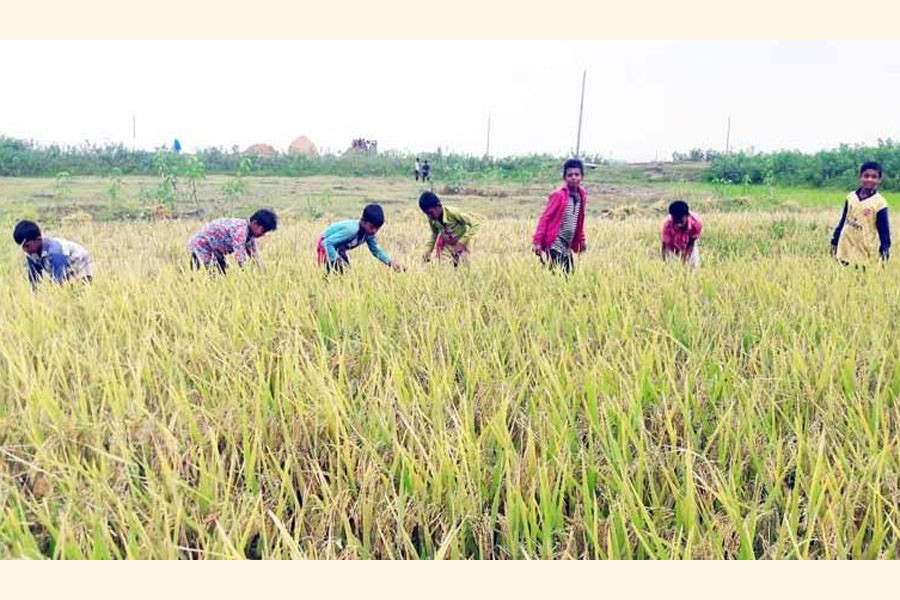SYLHET, Apr 25: A good number of school students in the haor areas of Sunamganj district have started working in paddy fields during the current Boro harvest period.
Sources said paddy harvest is being hampered seriously due to shortage of labourers in villages.
Meanwhile, an official at the DAE's Sylhet divisional office said on Wednesday last about 50 per cent crop has already been harvested in the haor areas while on the non-haor region it is about 15 per cent. The division's rice production would be about 1,877,000 tonnes this year.
There would be less production than target in some areas where the farmers cultivated BRRI-28 and others, a little late than the prescribed time, said deputy director of DAE Mozumder Md Ilias. The average yield was still good enough, he added.
Farmers in many areas, however, expressed utter disappointment due to poor yield. It is hard to manage labourers for Tk 400 to Tk 500 per day as the yield is very poor. Added to this is the fact that most of the plants had turned dry, said some farmers. Besides there is apprehension of early rains or hailstorms whereas the harvest time is just begun, they said.
Some farmers in Sunamagnj sadar said the yield is about 50 per cent with only about seven maunds on one bigha land whereas it was to be at least minimum double.
We can't spend much money for the harvest, said Abdul Haque of Derai upazila, but we have no other option since the dried up plants would be used as fodder during monsoon. Some well to do farmers in neighbouring Jogonnathpur upszila also said so.
Some DAE officials said the farmers are in trouble with lesser yield although things were well at the beginning. All these happened due to early rolling of water from many haors, drought and delayed rains, they added. However, lack of irrigation facilities in the haor region is a major cause for low yield.
Sayeed Miah of Tahirpur said, "Most of the paddy plants on my five bigha of land had turned dry (chita). It may not be possible to repay the loans, borrowed at the beginning of farming season."
A number of farmers said they had transplanted BRRI-28 mostly for early harvest to avoid possible rains. But the plants were affected by 'Blast' disease and then by the hailstorms. The production would be less than half on the affected areas, they added.


